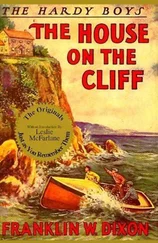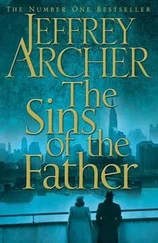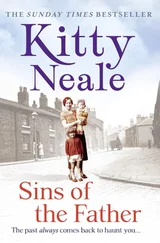Thomas Dixon - The Sins of the Father - A Romance of the South
Здесь есть возможность читать онлайн «Thomas Dixon - The Sins of the Father - A Romance of the South» — ознакомительный отрывок электронной книги совершенно бесплатно, а после прочтения отрывка купить полную версию. В некоторых случаях можно слушать аудио, скачать через торрент в формате fb2 и присутствует краткое содержание. Жанр: foreign_antique, foreign_prose, на английском языке. Описание произведения, (предисловие) а так же отзывы посетителей доступны на портале библиотеки ЛибКат.
- Название:The Sins of the Father: A Romance of the South
- Автор:
- Жанр:
- Год:неизвестен
- ISBN:нет данных
- Рейтинг книги:5 / 5. Голосов: 1
-
Избранное:Добавить в избранное
- Отзывы:
-
Ваша оценка:
- 100
- 1
- 2
- 3
- 4
- 5
The Sins of the Father: A Romance of the South: краткое содержание, описание и аннотация
Предлагаем к чтению аннотацию, описание, краткое содержание или предисловие (зависит от того, что написал сам автор книги «The Sins of the Father: A Romance of the South»). Если вы не нашли необходимую информацию о книге — напишите в комментариях, мы постараемся отыскать её.
The Sins of the Father: A Romance of the South — читать онлайн ознакомительный отрывок
Ниже представлен текст книги, разбитый по страницам. Система сохранения места последней прочитанной страницы, позволяет с удобством читать онлайн бесплатно книгу «The Sins of the Father: A Romance of the South», без необходимости каждый раз заново искать на чём Вы остановились. Поставьте закладку, и сможете в любой момент перейти на страницу, на которой закончили чтение.
Интервал:
Закладка:
Thomas Dixon
The Sins of the Father: A Romance of the South
TO THE READER
I wish it understood that I have not used in this novel the private life of Captain Randolph Shotwell, to whom this book is dedicated. I have drawn the character of my central figure from the authentic personal history of Major Daniel Norton himself, a distinguished citizen of the far South, with whom I was intimately acquainted for many years.
THOMAS DIXON. NEW YORK MARCH 8, 1912Book One – Sin
CHAPTER I
THE WOMAN IN YELLOW
The young editor of The Daily Eagle and Phoenix straightened his tall figure from the pile of papers that smothered his desk, glanced at his foreman who stood waiting, and spoke in the quiet drawl he always used when excited:
"Just a moment – 'til I read this over – "
The foreman nodded.
He scanned the scrawled pencil manuscript twice and handed it up without changing a letter:
"Set the title in heavy black-faced caps — black – the blackest you've got."
He read the title over again musingly, his strong mouth closing with a snap at its finish:
The foreman took the manuscript with a laugh:
"You've certainly got 'em guessing, major – "
"Who?"
"Everybody. We've all been thinking until these editorials began that you were a leader of the Klan."
A smile played about the corners of the deep-set brown eyes as he swung carelessly back to his desk and waved the printer to his task with a friendly sweep of his long arm:
"Let 'em think again!"
A shout in the Court House Square across the narrow street caused him to lift his head with a frown:
"Salesday – of course – the first Monday – doomsday for the conquered South – God, the horror of it all!"
He laid his pencil down, walked to the window and looked out on the crowd of slouching loafers as they gathered around the auctioneer's block. The negroes outnumbered the whites two to one.
A greasy, loud-mouthed negro, as black as ink, was the auctioneer.
"Well, gemmen an' feller citizens," he began pompously, "de fust piece er property I got ter sell hain't no property 'tall – hit's dese po' folks fum de County Po' House. Fetch 'em up agin de wall so de bidders can see 'em – "
He paused and a black court attendant led out and placed in line against the weatherbeaten walls fifty or sixty inmates of the County Poor House – all of them white men and women. Most of them were over seventy years old, and one with the quickest step and brightest eye, a little man of eighty-four with snow-white hair and beard, was the son of a hero of the American Revolution. The women were bareheaded and the blazing Southern sun of August beat down piteously on their pinched faces.
The young editor's fists slowly clinched and his breath came in a deep quivering draught. He watched as in a trance. He had seen four years' service in the bloodiest war in history – seen thousands swept into eternity from a single battlefield without a tear. He had witnessed the sufferings of the wounded and dying until it became the routine of a day's work. Yet no event of all that fierce and terrible struggle had stirred his soul as the scene he was now witnessing – not even the tragic end of his father, the editor of the Daily Eagle – who had been burned to death in the building when Sherman's army swept the land with fire and sword. The younger man had never referred to this except in a brief, hopeful editorial in the newly christened Eagle and Phoenix , which he literally built on the ashes of the old paper. He had no unkind word for General Sherman or his army. It was war, and a soldier knew what that meant. He would have done the same thing under similar conditions.
Now he was brushing a tear from his cheek. A reporter at work in the adjoining room watched him curiously. He had never before thought him capable of such an emotion. A brilliant and powerful editor, he had made his paper the one authoritative organ of the white race. In the midst of riot, revolution and counter revolution his voice had the clear ring of a bugle call to battle. There was never a note of hesitation, of uncertainty or of compromise. In the fierce white heat of an unconquered spirit, he had fused the souls of his people as one. At this moment he was the one man hated and feared most by the negroid government in power, the one man most admired and trusted by the white race.
And he was young – very young – yet he had lived a life so packed with tragic events no one ever guessed his real age, twenty-four. People took him to be more than thirty and the few threads of gray about his temples, added to the impression of age and dignity. He was not handsome in the conventional sense. His figure was too tall, his cheek bones too high, the nostrils too large and his eyebrows too heavy. His great height, six feet three, invariably made him appear gaunt and serious. Though he had served the entire four years in the Confederate army, entering a private in the ranks at eighteen, emerging a major in command of a shattered regiment at twenty-two, his figure did not convey the impression of military training. He walked easily, with the long, loose stride of the Southener, his shoulders slightly stooped from the habit of incessant reading.
He was lifting his broad shoulders now in an ominous way as he folded his clenched fists behind his back and listened to the negro auctioneer.
"Come now, gemmens," he went on; "what's de lowes' offer ye gwine ter start me fer dese folks? 'Member, now, de lowes' bid gets 'em, not de highes'! 'Fore de war de black man wuz put on de block an' sole ter de highes' bidder! Times is changed – "
"Yas, Lawd!" shouted a negro woman.
"Times is changed, I tells ye! – now I gwine ter sell dese po' white folks ter de lowes' bidder. Whosomever'll take de Po' House and bode 'em fer de least money gits de whole bunch. An' you has de right ter make 'em all work de Po' farm. Dey kin work, too, an' don' ye fergit it. Dese here ones I fotch out here ter show ye is all soun' in wind and limb. De bedridden ones ain't here. Dey ain't but six er dem. What's de lowes' bid now, gemmens, yer gwine ter gimme ter bode 'em by de month? Look 'em all over, gemmens, I warrants 'em ter be sound in wind an' limb. Sound in wind an' limb."
The auctioneer's sonorous voice lingered on this phrase and repeated it again and again.
The watcher at the window turned away in disgust, walked back to his desk, sat down, fidgeted in his seat, rose and returned to the window in time to hear the cry:
"An' sold to Mister Abum Russ fer fo' dollars a month!"
Could it be possible that he heard aright? Abe Russ the keeper to the poor! – a drunkard, wife beater, and midnight prowler. His father before him, "Devil Tom Russ," had been a notorious character, yet he had at least one redeeming quality that saved him from contempt – a keen sense of humor. He had made his living on a ten-acre red hill farm and never used a horse or an ox. He hitched himself to the plow and made Abe seize the handles. This strange team worked the fields. No matter how hard the day's task the elder Russ never quite lost his humorous view of life. When the boy, tired and thirsty, would stop and go to the spring for water, a favorite trick of his was to place a piece of paper or a chunk of wood in the furrow a few yards ahead. When the boy returned and they approached this object, the old man would stop, lift his head and snort, back and fill, frisk and caper, plunge and kick, and finally break and run, tearing over the fields like a maniac, dragging the plow after him with the breathless boy clinging to the handles. He would then quietly unhitch himself and thrash Abe within an inch of his life for being so careless as to allow a horse to run away with him.
Читать дальшеИнтервал:
Закладка:
Похожие книги на «The Sins of the Father: A Romance of the South»
Представляем Вашему вниманию похожие книги на «The Sins of the Father: A Romance of the South» списком для выбора. Мы отобрали схожую по названию и смыслу литературу в надежде предоставить читателям больше вариантов отыскать новые, интересные, ещё непрочитанные произведения.
Обсуждение, отзывы о книге «The Sins of the Father: A Romance of the South» и просто собственные мнения читателей. Оставьте ваши комментарии, напишите, что Вы думаете о произведении, его смысле или главных героях. Укажите что конкретно понравилось, а что нет, и почему Вы так считаете.












